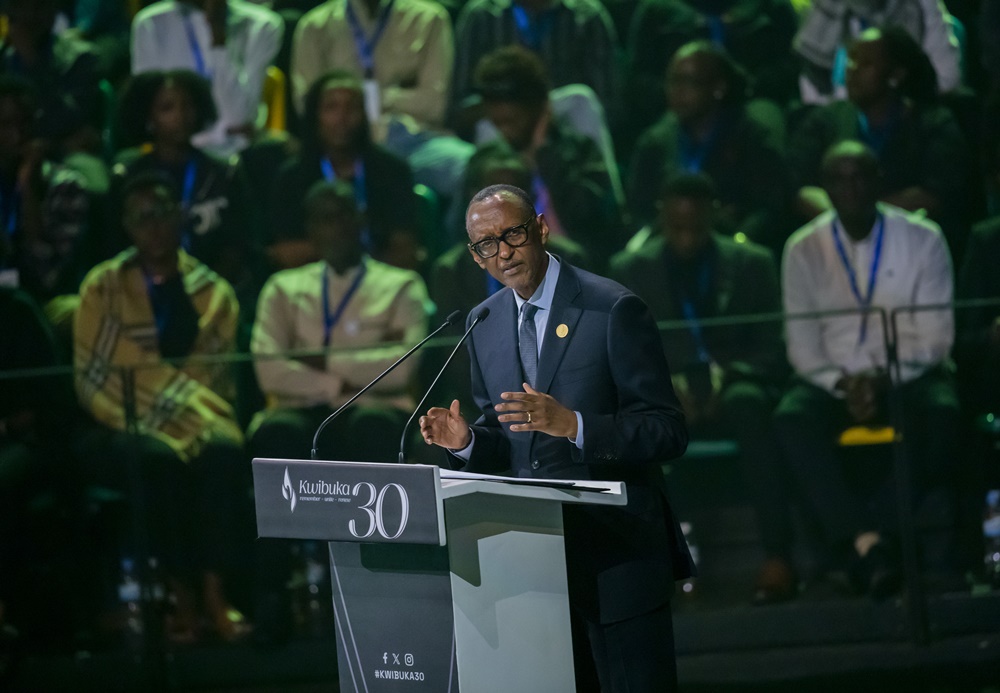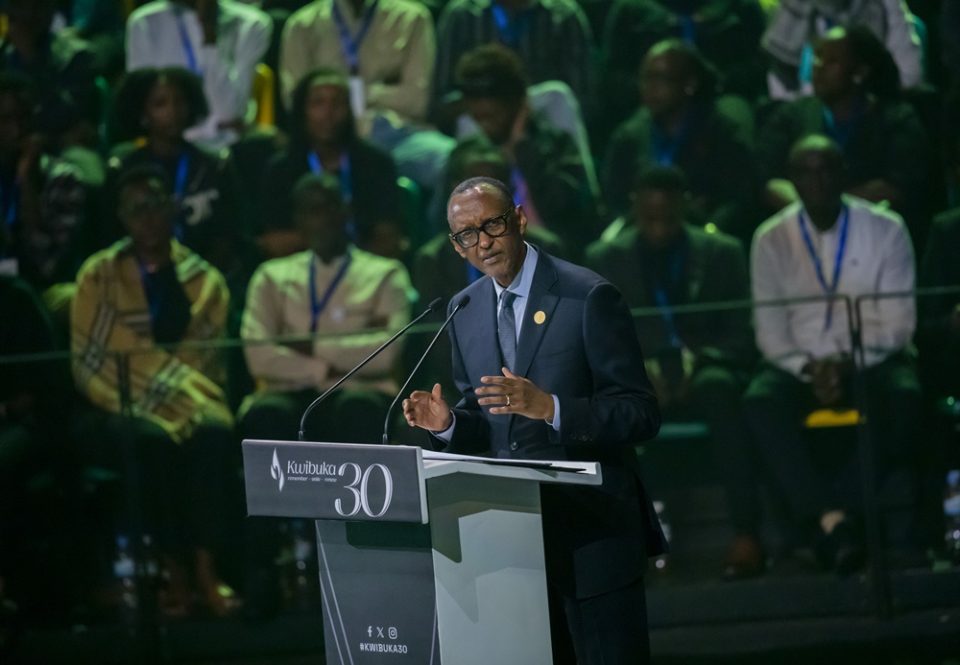President Paul Kagame has, for the first time, opened up about the death of his cousin, Florence, who was tragically killed in the 1994 Genocide against the Tutsi.
Speaking during the 30th commemoration of the genocide dubbed ‘Kwibuka30’, President Kagame revealed that Florence was killed by the Interahamwe while waiting to be rescued by the United Nations (UN) peacekeepers on the morning of May 16, 1994.
According to the Head of State, at the time of her death, Florence had worked with the United Nations Development Programme (UNDP) for more than 15 years and lived near Camp Kigali (KCEV).
Kagame, who was the commander of the Rwandan Patriotic Front (RPF) at the time, had spoken with his cousin several times over the telephone as the rebel group advanced to Kigali.
“The telephone in Florence’s house still worked and I called her several times using my satellite phone. Each time we spoke she was more desperate but our forces could not reach the area,” President Kagame painfully narrated.
He said that seeing that his soldiers would be delayed, he requested the commander of the peacekeeping mission, Roméo Dallaire, to rescue Florence, but the soldiers could not due to a roadblock erected by the killers.
“The last time I talked to her, I asked if anyone had come and she started crying. Then she said, ‘Paul, you should stop trying to save us. We don’t want to live anymore anyway.’ I quickly understood what she was saying, and she hung up,” President Kagame recounted.
The emotional last call with Florence left the President devastated and broken.
“At that time, I had a very strong heart but it weakened a bit because I understood what she was trying to tell me. On the morning of May 16, following a month of torture, they were all killed except for one niece who managed to escape thanks to a good neighbor,” he added.
Kagame further disclosed that his cousin was betrayed by a colleague to the killers and celebrated after her death.
He expressed his disappointment that no action was ever taken against the UNDP staffer despite evidence implicating him.
“It later emerged that a Rwandan working at the UNDP betrayed his Tutsi colleague to the killers. Witnesses remember him celebrating Florence’s murder the night after the attack. He continued his career with the UN for many years even after evidence implicating him emerged. He is still a free man now living in France,” Kagame narrated.
He, however, lauded General Dallaire for his courage, saying he did his best under the worst conditions.
“I asked General Dallaire what happened. He said his soldiers encountered a militia roadblock near the house, so they turned back just like that. Meanwhile, he conveyed to me an order from the US ambassador to protect diplomats and foreign civilians evacuating by road to Burundi from attacks by the militias. These two things happened at the same time,” he revealed
In an apparent critique of the US’ actions regarding the evacuation efforts, Kagame said the two incidents brought to the fore the “value attached to different shades of life”.
“I do not blame General Dallaire. He is a good man who did the best that could be done in the worst conditions imaginable. He has consistently borne witness to the truth despite a personal cost,” Kagame noted.
“Nevertheless, in the contrast between the two cases, I took note of the value that is attached to different shades of life.”
At the same time, President Kagame emphasized that soldiers who served in peacekeeping missions didn’t fail Rwandans during the genocide, but rather the international community, which was reluctant to take action and stop the killings.
“Many of the countries represented here also sent their sons and daughters to serve in peacekeeping missions in Rwanda. Those soldiers didn’t fail Rwanda. It was the international community that failed all of us. Whether out of contempt or cowardice,” he said as he recognized the widow and daughter of Captain Mbaye Diagne from Senegal, who died a hero while rescuing many targeted victims from death.
More than one million people were killed in the 1994 genocide against the Tutsi, which lasted for 100 days. The genocide ended after RPF overthrew the government that was accused of supporting extermination of the Tutsi.



